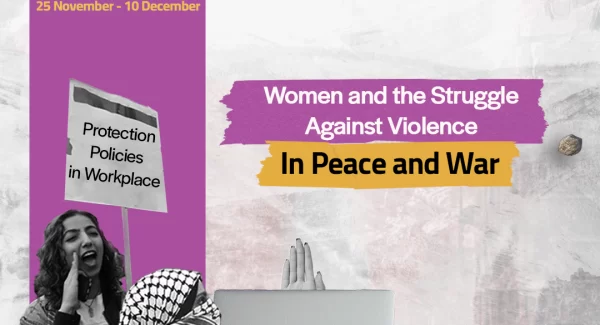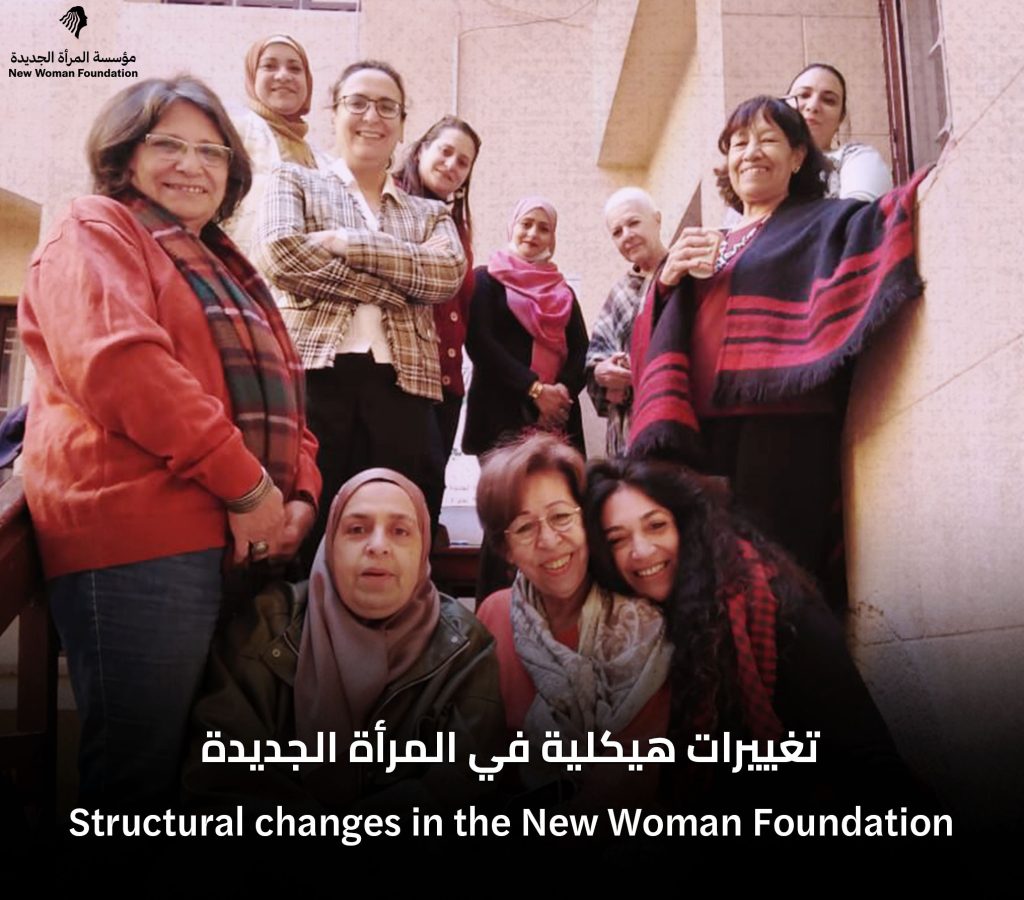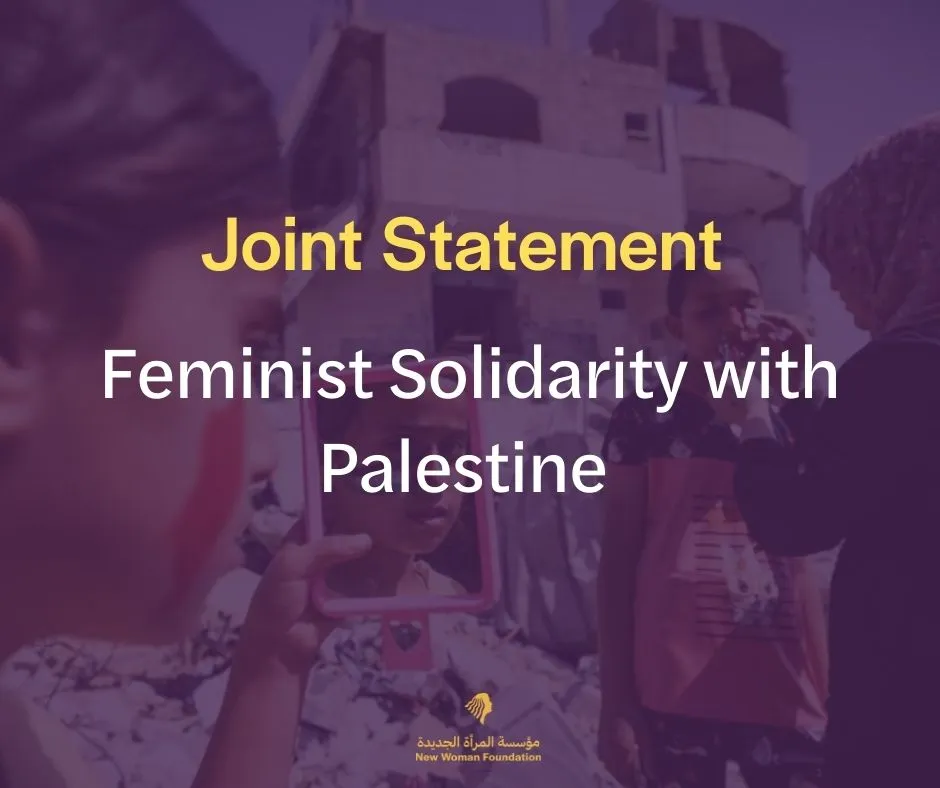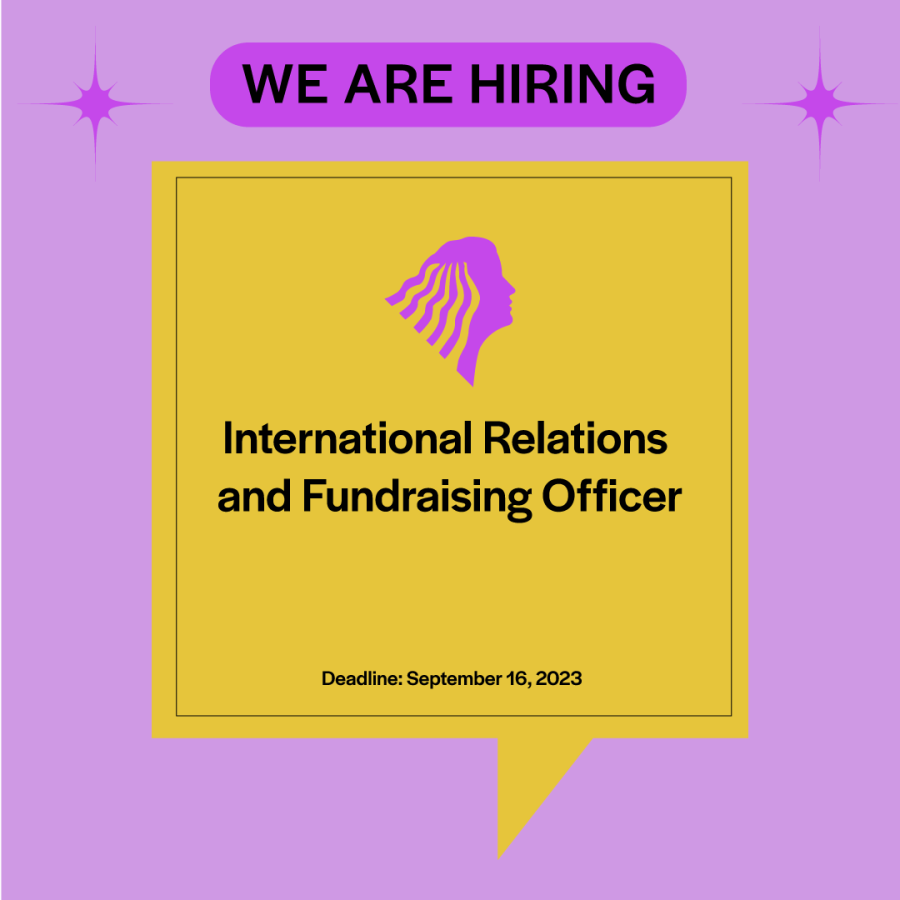- Contact Us
- 0020233382706
- nwrc@nwrcegypt.org
Statement of the 16days Campaign: Women and the Struggle Against Violence in Peace and War

Joint statement: Feminist Solidarity with Palestine
October 22, 2023
Structural changes within the New Woman Foundation
July 9, 2024Women and the Struggle Against Violence in Peace and War
Statement of the 16 Days of Activism Against Violence Against Women Campaign
The 16 Days of Activism Against Violence Against Women campaign unfolds this year amidst a regional backdrop marred by bloodshed and tragedy, reawakening the harrowing memories of global genocides perpetrated against the vulnerable and marginalized, perpetrated with the complicit silence of the international community. These historical atrocities committed against entire races and indigenous peoples remain indelible stains on humanity’s conscience, stark reminders of lessons yet to be learned.
Gaza’s current plight mirrors the patterns of genocide witnessed throughout history, a cold-blooded repetition unfolding within an international and regional landscape incapable of safeguarding the fundamental right to life, not only for all humans but particularly for indigenous populations.
As we launch our 2023 campaign against violence against women, we strive, within our limited capacity, to illuminate the plight of the Palestinian woman, the rightful owner of the land, who has endured a relentless torrent of loss, pain, and deprivation amidst a war whose delayed justice remains elusive.
This year’s campaign dedicates a significant portion of its activities to highlighting the challenges and opportunities for feminist solidarity with Palestinian women in the midst of war. In collaboration with our Palestinian partners in the feminist movement, we seek to raise pertinent questions of solidarity and collectively find answers. Additionally, we will host a national dialogue on the conditions of women displaced within the Gaza Strip, documenting the extent of the harrowing displacement from north to south. We celebrate the resilience of women who remain steadfast in their defense of the land, and in solidarity with displaced bereaved mothers and orphaned girls, we seek to shed light on the magnitude of the humanitarian catastrophe enveloping Palestinian women, aspiring to contribute a Palestinian feminist narrative on the realities of women and war.
While our attention is drawn to the regional context and the fight against violence against women in war, we remain steadfast in addressing the daily violence endured by Egyptian women and girls. We continue to advocate for a just legislative framework to protect against violence, particularly given the alarming escalation in the brutality of violence against women in public spaces. This rise in violence demands a thorough investigation into its underlying causes, delving into the nexus between deteriorating political, economic, and social conditions and the surge in violence against women. It is crucial to understand why women consistently bear the brunt of the consequences of societal decline.
We recognize that our efforts to enhance legislative protection against violence, whether through the enactment of a unified anti-violence law or the ratification of Convention 190 C, may not be sufficient to provide comprehensive protection. However, we remain unwavering in our pursuit of legislative safeguards, recognizing it as an inherent right of citizens and society as a whole.




